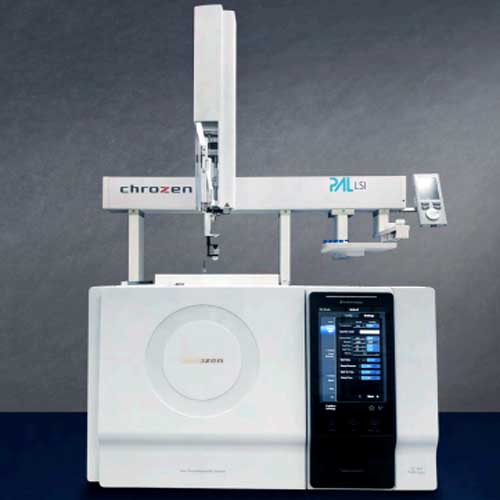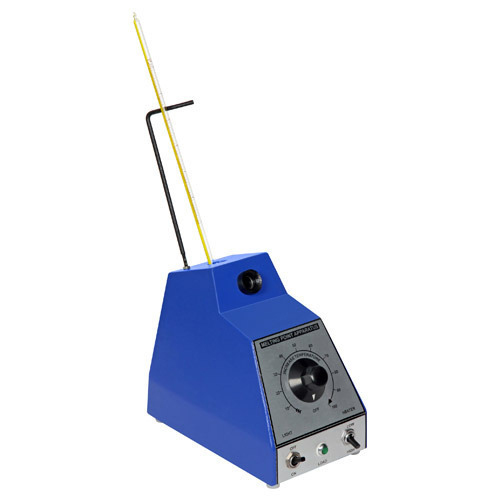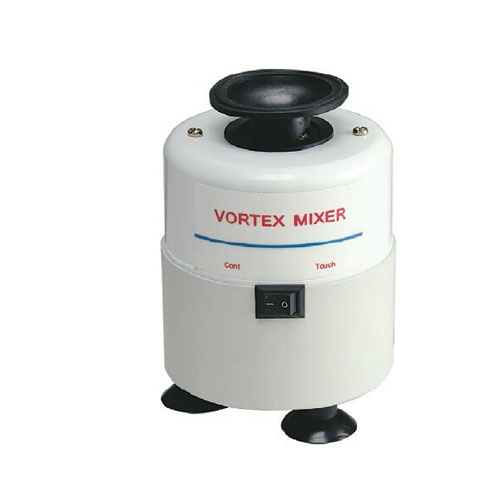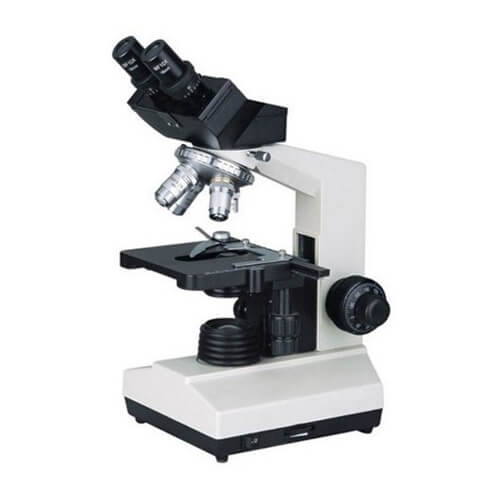ChroZen TQ GC/MS is the right solution to achieve greater insight of the samples with the extremely selective and sensitive data for quantitative and qualitative information and will lead you to the whole new level from the method setup to the data elucidation and instrument maintenance. Its structural characteristics such as 180° curved collision cell and lens-free optics eliminate the interferences of co-eluting compounds and neutrons, minimize the need of maintenance and simplify the method setup to maximize the ease of use.
Major Features of our ChroZen TQ GC/MS
| 1. 180° Curved Collision Cell |
| The fast moving ions from the first quadrupole collide with the collision gas and they get dissociated while removing the interference of neutrons in the 180° curved RF-only quadrupole. This reduces the background noise and increases the signal-to-noise ratio, which means it efficiently improves MRM sensitivity in real sample matrice. |
| 2. Active Focusing Ion Guide |
| The 90° shaped ion guide curves the ions to eliminate neutrons and reduce noise. It’s also heated to 135℃ from the ion source for ions not to get condensed and contaminate the guide. There is a helium gas input to improve ion transmission so it provides a more focused ion stream that enhances the sensitivity. |
| 3. Axial Ion Source |
| The axial ion source generates ions on-axis from the column and its unique design including inert lenses reduces the contamination by sample matrice for higher sensitivity. It utilizes double filaments with electron-bouncing technology to increase productivity without the instrument downtime for the maintenance. |
| 4. EDR (Extended Dynamic Range) Detection System |
| Extended Dynamic Range (EDR) automatically adjusts the detector for the best signal-to-noise ratio (s/n) and EM voltage optimizes for every scan. |
| 5. High Capacity of Turbo Pump |
| The high capacity of dual stage (310 L/s and 400 L/s) turbomolecular pump rapidly stabilizes the vacuum status for higher productivity. |
Specification:
| ChroZen Triple Quadrupole GC/MS Specifications | |
| Specification | |
| Ionization Mode | Electron Ionization (EI) as standard, available with Chemical Ionization (CI) |
| Ion Source | Auto-aligning ion source constructed of inert materials |
| q0 Ion Guide | 90° curved RF-only entrance quadrupole with active ion beam focusing and heating at 135°C |
| Source Temperature | 100 – 350 °C |
| Filament and Emission Current | Dual filaments; up to 200 μA |
| Electron Energy | Adjustable from 0 – 150 eV |
| Mass Filters | Quadrupole with pre- and post-filters; high ion transmission efficiency, lens-free design |
| Collision Cell | 180° curved path with pre- and post-filter regions |
| Collision Energy | Selectable up to 75 eV |
| Mass Range (m/z) | 1 – 1,200 Da |
| Scan Rate | Up to 30,000 Da/sec |
| Minimum Dwell Time | 0.5 msec |
| Maximum Acquisition MRM Rate | 1,000 MRMs/sec |
| Resolution | User-adjustable from 0.7 – 4 Da |
| Mass Axis Stability | < ± 0.1 Da over 48 hours |
| Transfer Line Temperature | Up to 350 °C |
| Detector | EDR™ Electron multiplier with ±5 kV, 107 Dynamic Range |
| Turbomolecular Pump | Dual stage, 310 L/sec and 400 L/sec |
| Mode | Test Condition (with Capillary inlet in hot splitless mode) | Sensitivity |
| EI Full Scan | 1 pg OFN from m/z 50 to 300 for m/z 272 | S/N ≥ 1,000:1 |
| EI SIM | 1 pg OFN for m/z 272 | S/N ≥ 2,000:1 |
| EI MRM | 1 pg OFN for m/z 272>222 | S/N ≥ 300,000:1 |
| PCI Full Scan | 10 pg BZP from m/z 80 to 230 for m/z 183 | S/N ≥ 50:1 |
| PCI MRM | 1 pg BZP for m/z 183>105 | S/N ≥ 1,500:1 |
| NCI Full Scan | 1 pg OFN from m/z 200 to 300 for m/z 272 | S/N ≥ 4,000:1 |
| NCI SIM | 1 pg OFN for m/z 272 | S/N ≥ 40,000:1 |







Reviews
There are no reviews yet.